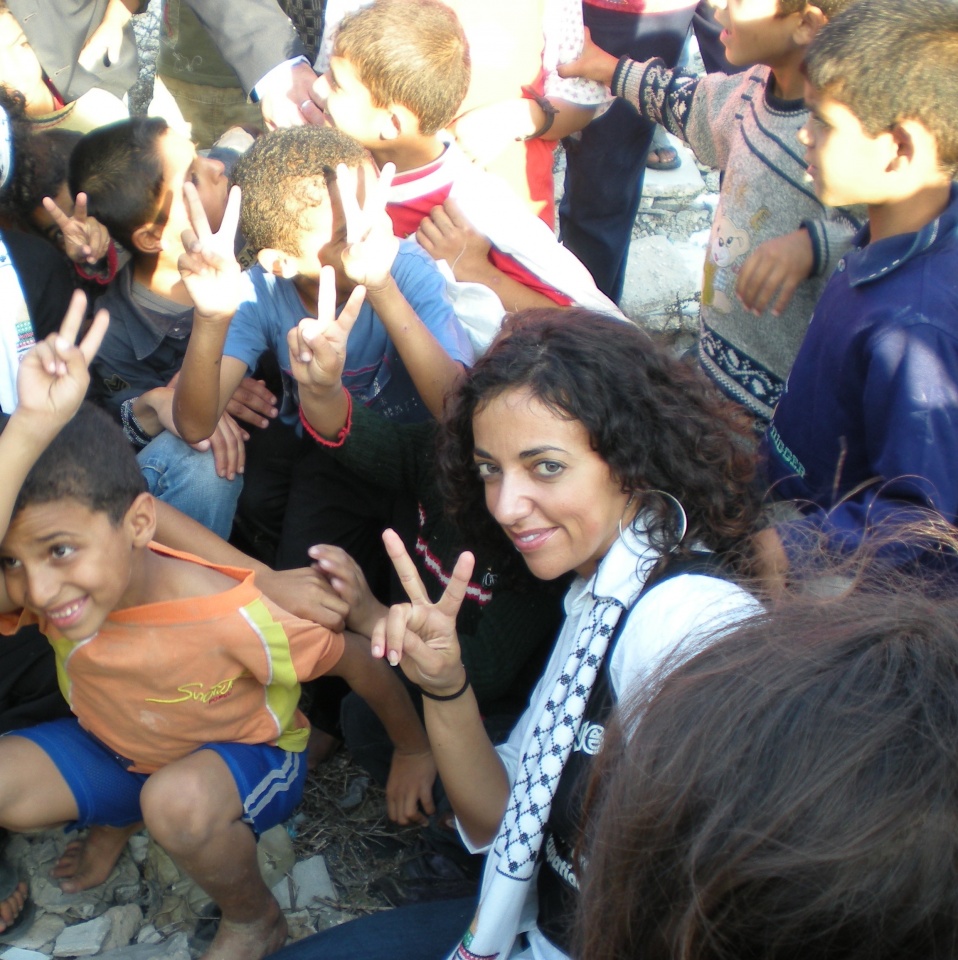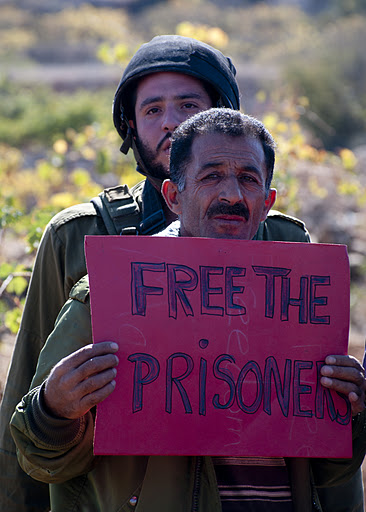-
Huwaida Arraf: ‘They have lies to spin; we have truths to tell’
Yousef M. Aljamal 30 October 2011 | Mondoweiss Yousef M. Aljamal of Gaza’s Center for Political Development Studies interviews with Huwaida Arraf, cofounder of the International Solidarity Movement: Aljamal: First, could you please give us a brief introduction about ISM? Arraf: The International Solidarity Movement (ISM) is a Palestinian-led movement committed to resisting the Israeli occupation of Palestinian […]
-
Israeli prison industrial complex in motion
by Lisa 30 October 2011 | International Solidarity Movement West Bank During a settler tour around the old city in Hebron on Saturday, where dozens of Israelis were guided around in a sort of parade, a Palestinian man named Yousef Salim Issa Al Batch, passed by and was stopped by Israeli police. He had a […]
-
Beit Ummar: Settlers throw stones from behind military tear gas
by Anders and Aurelie 30 October 2011 | International Solidarity Movement, 2011 What started as a peaceful demonstration soon erupted into violence when soldiers and settlers from Karmei Tzur settlement attacked a demonstration in Beit Ummar today. The demonstration of around 30 Palestinians and internationals started from the outskirts of the village and continued through a […]
Action Alert An Nabi Saleh Apartheid Wall Arrests BDS Bethlehem Bil'in Cast Lead Demonstration Denial of Entry Ethnic Cleansing Farmers Gaza Global Actions Hebron House Demolition International law Israeli Army Jerusalem Live Ammunition Nablus Ni'lin Prisoner Ramallah Rubber-coated steel bullets Settlement Settlers Settler violence Tear-Gas Canister Video


